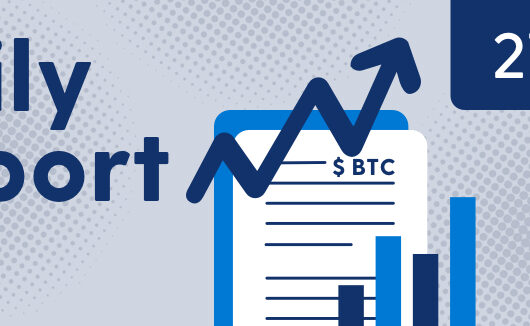Weekend recap: Is Bitcoin coming to a school near you? ?

Missed the latest cryptocurrency news over the weekend? Don’t panic, we’ve got you covered. Here are all the major headlines, featuring Bitcoin in schools, new UK crypto tax guidance, and more.
? Bitcoin included in national curriculum for first time
France has already proven itself bullish when it comes to the power of cryptocurrency and blockchain. President Emmanuel Macron himself recently declared his interest in leveraging the power of blockchain in industries such as agriculture. And now it seems that this enthusiasm is filtering through to the nation’s youth, with France becoming the first country with a nationwide education programme that features Bitcoin. Vive la crypto-monnaie!
The Ministry of National Education of France has updated its syllabus for 2020 to incorporate Bitcoin and cryptocurrencies. They have introduced worksheets, videos, and other resources to enable teachers to create lessons for economics students in their first year at lycée (the last stage of secondary education in the French school system).
The lessons will cover topics such as whether Bitcoin has a future, whether it will replace other currencies such as the Euro, and whether Bitcoins really fulfils all the conditions necessary to qualify as money.
?? UK releases updated crypto tax guidance
On Friday, the UK government tax agency, Her Majesty’s Revenue and Customs (HMRC), released updated guidelines for cryptocurrency transactions. These detail the process of taxing cryptocurrency transactions, stating that any businesses and individuals who engage in “buying and selling exchange tokens, mining, exchanging tokens for other assets, as well as providing goods or services in return for exchange tokens” would likely be obligated to pay taxes.
The guidelines explicitly state that the HMRC does not consider any of the current types of cryptocurrencies to be money or currency. In most circumstances, it will also not consider cryptocurrencies to be “stock or marketable securities.” This means that cryptocurrencies are largely exempted from stamp taxes—though stamp taxes will still apply if the cryptocurrencies are used in debt transactions.
The good news is that HMRC has recognised that the cryptocurrency sector is fast-moving and each case will be considered separately, with the relevant tax provisions applied according to what has actually taken place.
? Did Bitcoin whale drive 2017 bull run?
The bull run of December 2017 saw the price of Bitcoin hit $20,000. Since then, there has been a great deal of speculation as to its causes. Too much, maybe. A new addition to the catalogue, however, could cause a stir. Researchers John M. Griffin and Amin Shams — of the universities of Texas and Ohio respectively — have followed up on their allegations of market misconduct with a new paper that claims it was largely reliant on Tether, a widely used digital token pegged to the US dollar.
“Our results suggest instead of thousands of investors moving the price of Bitcoin, it’s just one large one,” Griffin told Bloomberg. “Years from now, people will be surprised to learn investors handed over billions to people they didn’t know and who faced little oversight.”
Griffin and Sham’s peer-reviewed analysis uncovered that Bitcoin purchases on Bitfinex increased whenever Bitcoin’s value fell by certain increments. “This pattern is only present in periods following the printing of Tether, driven by a single large account holder, and not observed by other exchanges,” the paper reads. “Simulations show that these patterns are highly unlikely to be due to chance. This one large player or entity either exhibited clairvoyant market timing or exerted an extremely large price impact on Bitcoin that is not observed in aggregate flows from other smaller traders.”
The charge has been vigorously denied by Tether, whose general counsel Stuart Hoegner said that the academics‘ paper was “foundationally flawed” because it was based on an insufficient data set. The research was probably published to back a “parasitic lawsuit,” Hoegner added in his statement. “This is a transparent attempt to use the semblance of academia for a mercenary money grab,” Hoegner said. “Updates or not, the paper lacks academic rigour.” He added that “macroeconomic experts and stakeholders in the cryptocurrency ecosystem understand that it is the global rise of digital currency that has driven the markets and demand for Tether.”
?? Big week for China’s blockchain stocks
China’s blockchain-related stocks were on the up last week following Chinese President Xi Jinping’s apparent endorsement of the technology. The East China Money index, which tracks 172 mainland-listed companies that develop or use the technology, shot up 8.1%. 107 of the component companies hit the daily 10% upside limit in China’s main boards. One Shanghai-listed company – property developer Xinhu Zhongbao – surged more than 60% over the week. Will it last though?
? Telegram releases new wallet despite investigation
Encrypted messaging provider Telegram has released an early desktop wallet for its “gram” token. Users can download the test app for MacOS, Windows and Linux 64 bit on Telegram’s official website and get their keys on the TON testnet. The wallet asks users to save 24 seed words and create a password for payments, after which the wallet is ready to receive and send grams.
The developer of Telegram’s TON network raised approximately $1.7 billion via a private token sale in 2018. It was supposed to go live towards the end of last month, the US Securities and Exchange Commission (SEC) sued Telegram. The federal regulator claims that Telegram’s Gram tokens are unregistered financial securities.
 Discover
Discover Help Centre
Help Centre Status
Status Company
Company Careers
Careers Press
Press


